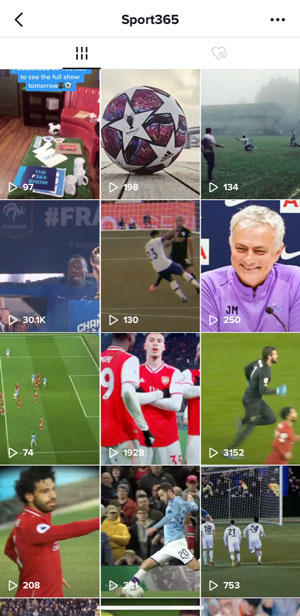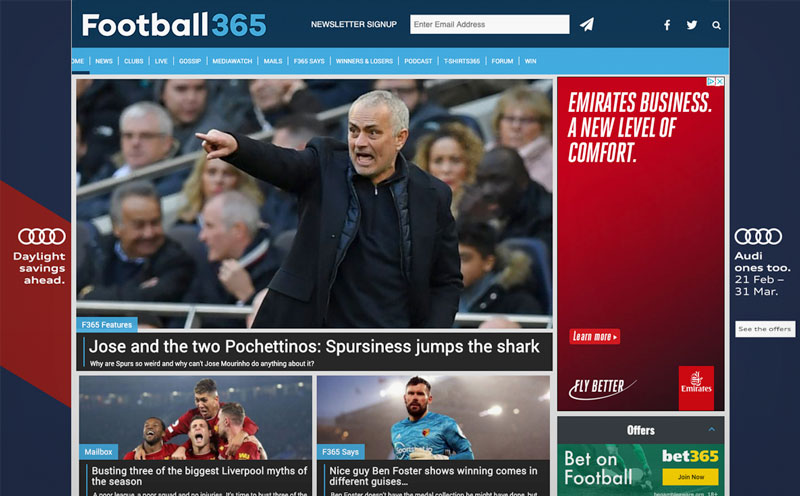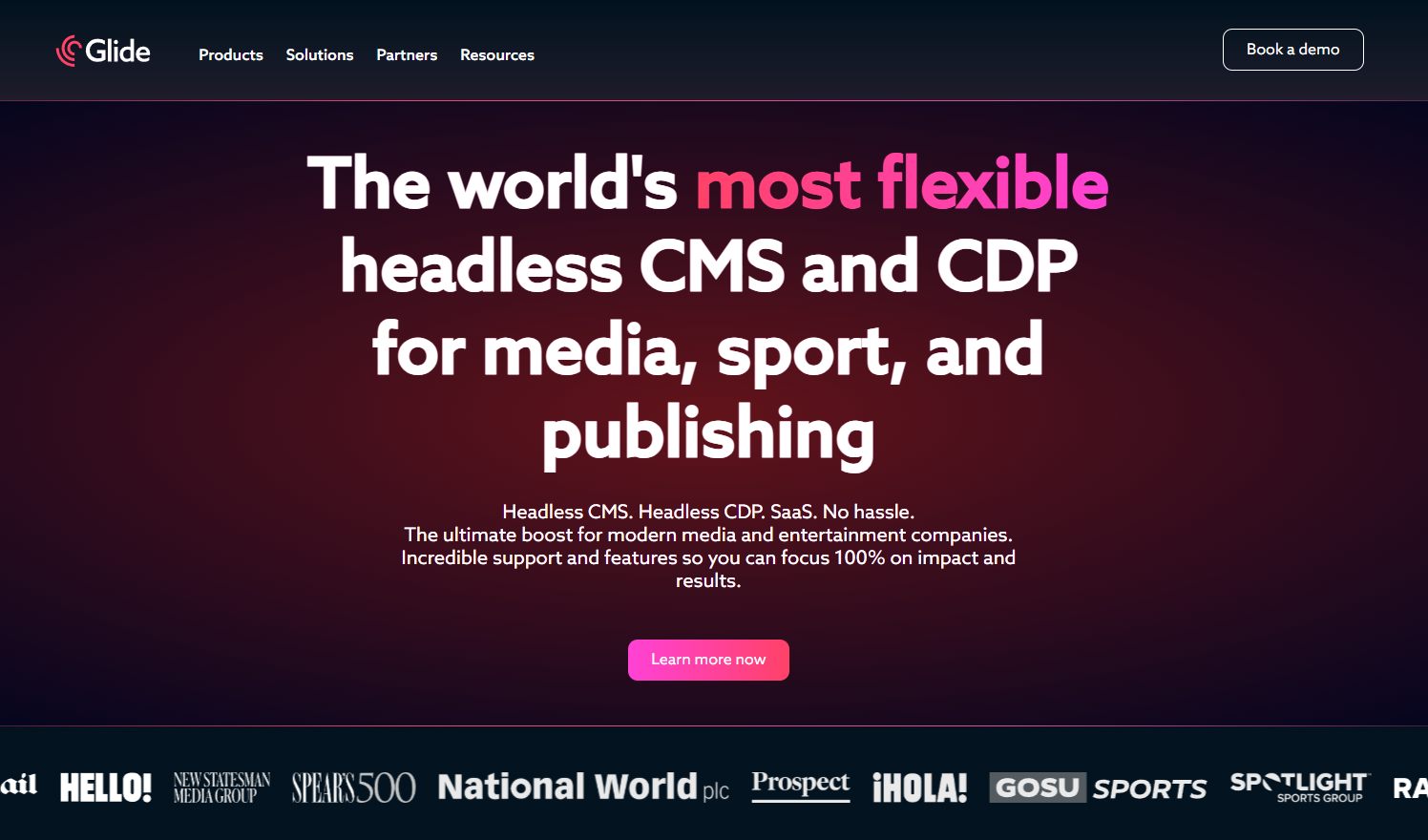With so much negative coverage of publishing, we at Bibblio are shining a spotlight on the many vertical publishers that are thriving. Welcome to the “Vertical Heroes” series of interviews.
Sport is big business, and few know this better than Andy Roberts, director of strategy and planning at YorMedia Solutions. This full service agency works on Planet Sport Publishing’s sports-specific network. Planet Sport operates a portfolio of nine web sites covering a variety of sports. Running in various forms for the last 20 years, this Leeds, UK brand “gives fans a voice – empowering them with entertaining content, knowledgeable analysis and attitude”.
Andy spoke to Bibblio CEO Mads Holmen about staying true to brand, being authentic and not becoming seduced by trends.
Mads: Hi Andy. Let’s kick off with Planet Sport Publishing’s target audience.
Andy: Planet Sport generally seeks sports fans 18-34, across a range of sports verticals such as football, F1, rugby and more.
M: what different types of content do they offer?
A: Written news articles, analysis and features; video, audio commentaries, sports data, podcasts and social-media specific content. Planet Sport also works with sponsor partners on paid content and advertorial.
M: how large are they and what’s their audience?
A: Planet Sport publishes some well-loved titles such as Football365, TEAMtalk, Planet Football, Planet Rugby and Planet F1. The network reaches 10m unique users per month, with audiences particularly in the UK, Ireland & USA. There is a large team of journalists and content producers, supported by commercial, design and specialist freelancers and contractors.
M: they’ve grown impressively – what has been the secret sauce?
A: There’s no one thing. Bubbling around the list for me would include: staying true to the brand positionings and tone of the various titles. Testing and learning new content, tech and products but not being seduced by the latest shiny thing obsessed over in the industry or trade publications. Optimizing the CMS and publishing output. Working with the right partners.
M: how do they prioritize attracting new audiences vs. Engaging existing users deeper?
A: They both do the same thing: get your engagement right and that will lead to more organic reach. Both need to happen, so you can’t focus on one at the detriment of the other. It’s a fine balance but useful solutions like Bibblio help on the latter.
M: how are they retaining audiences?
A: A lot of the titles have longstanding audiences that make the ‘direct’ acquisition bucket look very attractive compared to some publishers that are continually striving to bring in new (promiscuous) users. Planet Sport has lots of those types of users too as sport news can be consumed like that in a ready fashion. But the brand and tone is important for maintaining a sense of belonging and community.
There are touchpoints like comments, forums, social channels and email newsletters that help engender that, but the business can drive a lot more retention from optimizing its direct relationships with fans and that is what it is working on now.
M: what are the key audience metrics they define success by?
A: We look at users, sessions, bounce rate, pages per session, session duration and first tier geo-location users.
M: define what seo means to you these days. Are we talking keywords, page speed, engagement?
A: We’re not short of content, it’s just marshalling it all most effectively. It’s all about on-page and technical optimizations. No magic bullet – just make things as easy for search engines to see your (organized) content.
M: what’s their social media strategy, and how important is it for them to be present on those platforms?
A: The strategy is geared towards improving Planet Sport’s social media presence every day: always testing; being relevant, exciting and engaging. Tactics include: finding the right people to create great social media content; producing varied types of video and graphics, engaging the audience in an authentic fashion; driving traffic with a combination of organic, paid and cross-posting; finding and working with influencers; getting involved in all new platforms and to measure it all. In terms of platforms, TikTok has plenty of scope right now.

M: how do you drive engagement when readers land on their sites?
A: We use various types of content – video, data, social media – to augment a topic. We also use recirculation and content recommendation tools such as Bibblio. In addition to these, we provide a comments system and display registration prompts.
M: do they work together with other publications in your vertical?
A: We try and work with like-minded publishers wherever possible. It shouldn’t be a great competition and there is a market for lots of different flavors of content on any one topic. We readily share social media content and cross-promote content on the web from publishers we work with if they do the same for us. We’d like to use tech like Bibblio’s Syndication feature to help formalize those kinds of relationships. If any likeminded publishers are interested, do get in touch!
M: would you describe them as data-driven?
A: They are. It’s an exciting and major area of investment for Planet Sport right now.
Content from our partners
M: could you shed a bit of light on their revenue model?
A: Advertising, sponsorship, native content, betting partnerships, e-commerce and syndication are all part of the revenue mix.
M: how do you drive site visitors to the sponsored content?
A: Using the network effect, organic and paid social media, and content discovery networks.
M: what do you find most exciting about working on planet sport?
A: It’s the deepening of the business’ data and insight. You never tire of learning about audiences.
M: why do you think their model has been successful?
A: Some of the Planet Sport titles have enjoyed a 20 year longevity which proves the group is doing something right. The business takes measured decisions on investments and keeps a tight control on the P&L. It doesn’t get seduced by the latest trends and often finds itself able to pick up the pieces where other businesses have been early with something and failed.
M: from your own journey, what do you think other vertical publishers could learn?
A: Don’t get taken in by the noise and trends. Build your business honestly and steadily. Be sure to make lots of friends.













